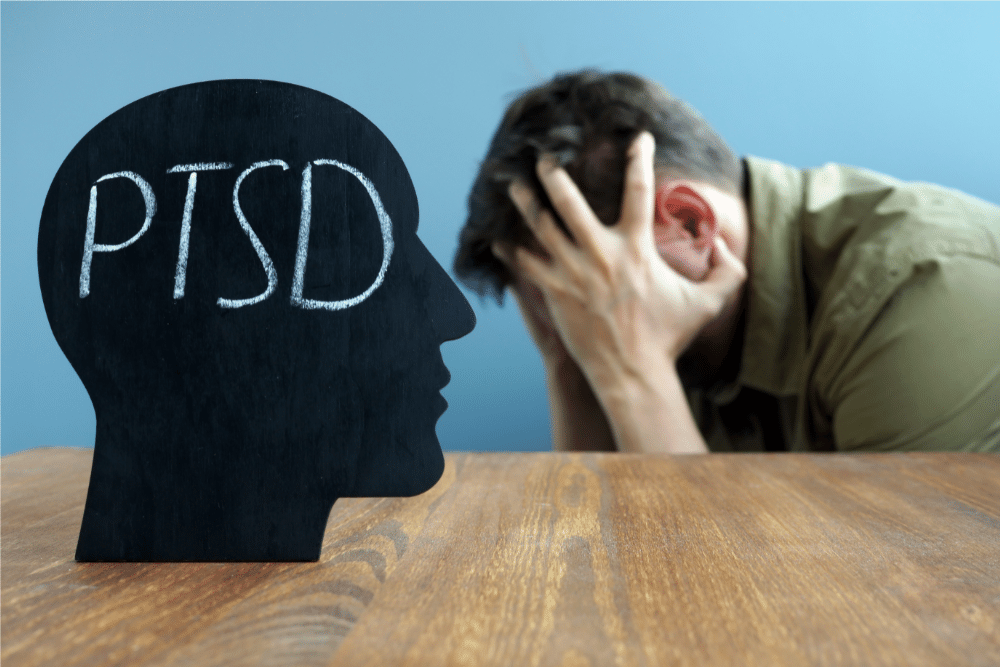Post-traumatic stress disorder, or PTSD as often called, is a mental health condition caused by trauma. Everyone experiences trauma at some point in their lives that causes them to feel upset, stressed, anxious, or overwhelmed by their experience. These feelings are usually normal and tend to resolve with time. But for some people, they happen right away. Their PTSD symptoms occur much later or intermittently. They may even develop intense, severe, and prolonged reactions to trauma that impairs their emotions, thoughts, and behaviors.
Without treatment, they may even develop sleep issues and other symptoms that affect their ability to do the things they usually do or enjoy. Eventually, these symptoms and problems tarnish their relationships, mental and physical health, and overall quality of life. PTSD treatment in Los Angeles at NeoPsych can help with these persistent symptoms to help them get back to the life they once had.
What Is Trauma?
Trauma is a normal emotional reaction to stressful situations, such as accidents, injuries, or any event that causes unsettling feelings or memories. It’s estimated that over 20 percent of adults will develop lingering or persistent PTSD symptoms after experiencing trauma. Trauma is an individual experience.
While there is no right or wrong way to respond to these types of circumstances, if these feelings persist, they could indicate the presence of one of the following types of traumas.
- Acuteness is common with singular traumatic events.
- Chronic refers to trauma that happens multiple times or over an extended period of time.
- Complex involves a combination of repeat traumatic events that affect those exposed on a personal and physical level.
PTSD disorder symptoms vary widely per person. But there are some similarities in responses.
What Causes PTSD?
PTSD can happen to anyone at any age after exposure to a shocking or dangerous event or situation. Some confuse it as a sign of weakness, but it’s not a sign of weakness. Although there is no singular cause for the condition, there are various factors, many of which are beyond our control.
- Domestic violence
- Sexual violence
- Childhood abuse
- natural disaster
- Serious injury
- Major accident
- Combat in war or witnessing combat
- Brushes with death and being threatened by it
Some individuals are more vulnerable to PTSD than others. Women and children are more likely to experience significant trauma responses than men from the circumstances mentioned above.
The many conflicting symptoms associated with PTSD, according to the Anxiety & Depression Association of America, are broken down into the following four categories.
Avoidance
When someone has PTSD, they have flashbacks and intense emotions that upset them. They often avoid things, people, activities, and conversations that remind them of the situation. Only one or more symptoms are necessary for diagnosis.
Distorted Emotions and Poor Moods
When someone has trauma related to a specific event, many changes can occur in the brain, including the capacity to recall details about the triggering event or regulate their emotions or behaviors. The following symptoms are common:
- Major or minor lapses in memory or alterations in cognition
- They may have ups and downs in moods
- Blocking out aspects of the event that were important
- Not being able to remember the negative parts of the experience
- Distorted views of self and others and distrust
- Blaming self for the cause or aftermath of the event
- Ongoing feelings of guilt, shame, being scared, and terror
- Feeling numb and unable to have feelings of joy or excitement
At least two of these symptoms are necessary for a clinical PTSD diagnosis.
Intrusive Memories and Thoughts
Post-traumatic stress disorder also causes persistent or intrusive memories of the trauma.
- Nightmares and frightening dreams about the incident
- Memories that pop up seemingly out of nowhere are involuntary
- Unexpected flashbacks relating to the incident are so strong that it can feel as if it is happening all over again.
Only one of these symptoms is necessary for a diagnosis of PTSD.
Changes in Behavior and Reactions
Some individuals with PTSD fluctuate between reactive and passive behaviors that can include:
- Irritability or angry outbursts
- Suspicion of the people and surroundings around them.
- Self-destructive, irresponsible behavior that can have serious consequences
- Being jumpy or startled easily.
- Difficulties in concentration.
- Have a hard time falling asleep and staying asleep or irritated sleep patterns
Two or more must be present for formal post-traumatic stress disorder diagnosis.

Also, there are two subtypes of post-traumatic stress disorder:
Dissociative PTSD causes those afflicted to feel disconnected from their surroundings or reality. Some describe this as an out-of-body experience, like watching themselves in a movie. Memory loss and diminished social skills are common side effects experienced by people with dissociative PTSD.
Delayed Post-Traumatic Stress Disorder occurs in a small portion of people who develop an unhealthy or abnormal reaction to trauma. In order for an official diagnosis of delayed PTSD, symptoms must be present for six months or longer. It is possible to have one or both subtypes of PTSD concurrently.
In order to be clinically diagnosed with PTSD, at least six symptoms must occur for at least one month and meet the following criteria:
- Work or school impairment
- Social problems and interacting with others
- Cause stress at home or other areas of life
- Is not due to alcohol, drugs, or medications
- Not related to underlying medical conditions
Because trauma and PTSD impact everyone differently, it is common for individuals to share the same diagnosis, although they have different symptoms.
PTSD Treatment in Los Angeles
If you suspect that you or a loved one may be dealing with PTSD, contact NeoPsych at (213) 616-5821 to learn PTSD treatment options.
